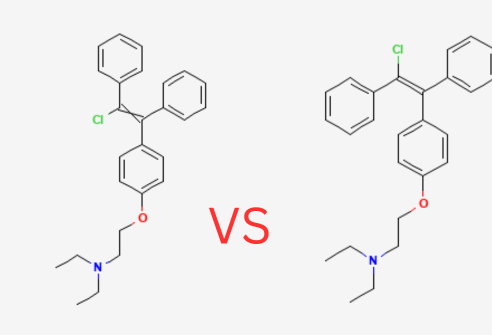Enclomiphene is generally considered safe and well-tolerated for treating low testosterone levels while preserving fertility. However, like any medication, it has potential side effects and contraindications that users should be aware of. This article will explore the safety profile of enclomiphene, its mechanism of action, and how it compares to traditional testosterone replacement therapy (TRT).
What is Enclomiphene?
Enclomiphene is a selective estrogen receptor modulator (SERM) derived from clomiphene citrate. It’s used off-label for men with low testosterone, particularly those who wish to maintain their fertility. Enclomiphene works by selectively blocking estrogen receptors in the hypothalamus and pituitary gland, stimulating the body’s natural testosterone production.
How Does Enclomiphene Work?
The mechanism of action of enclomiphene is centered on its ability to disrupt the negative feedback loop of estrogen on the hypothalamic-pituitary-gonadal axis. By blocking estrogen receptors in the brain, enclomiphene increases the release of gonadotropin-releasing hormone (GnRH) from the hypothalamus. This, in turn, stimulates the pituitary gland to secrete more luteinizing hormone (LH) and follicle-stimulating hormone (FSH).
LH and FSH play crucial roles in male reproductive health. LH stimulates the Leydig cells in the testes to produce testosterone, while FSH supports sperm production. This dual action allows enclomiphene to raise serum testosterone levels while preserving or even enhancing fertility.
Is Enclomiphene Safe?
Clinical studies have shown that enclomiphene is generally safe and well-tolerated. In Phase II and III trials, the rates of adverse events were low and comparable to placebo groups. This favorable safety profile, combined with its effectiveness in increasing testosterone levels, makes enclomiphene an attractive option for men with secondary hypogonadism.
Common Side Effects of Enclomiphene
While Enclomiphene is generally well-tolerated, some users may experience mild side effects. These can include headaches, nausea, fatigue, hot flashes, dizziness, and acne. It’s important to note that these side effects are typically transient and self-resolving.

Serious Risks and Contraindications
Although rare, there are some serious risks associated with enclomiphene use. These include:
- Thromboembolic events: There is a small risk of blood clots, such as deep vein thrombosis or pulmonary embolism.
- Allergic reactions: In rare cases, users may experience severe allergic reactions, including swelling and difficulty breathing.
- Visual disturbances: Some users have reported changes in vision, although this is uncommon.
Enclomiphene should be avoided by individuals with a history of blood clots or cardiovascular disease. Patients with liver dysfunction may require close monitoring during treatment.
Long-Term Safety of Enclomiphene
While long-term studies specifically on enclomiphene are limited due to its relatively recent adoption in male hormone therapy, insights can be drawn from long-term studies on clomiphene, its parent compound. Potential long-term side effects may include mood changes, such as irritability or aggression, and breast tenderness or gynecomastia due to elevated estradiol levels. Regular medical monitoring is crucial during long-term enclomiphene treatment to ensure safety and efficacy.
Enclomiphene vs. Testosterone Replacement Therapy (TRT)
Enclomiphene offers several advantages over traditional TRT:
- Fertility preservation: Unlike TRT, which can suppress sperm production, enclomiphene maintains or even enhances fertility.
- Natural testosterone production: Enclomiphene stimulates the body’s own testosterone production, potentially reducing the risk of dependency.
- Fewer side effects: Enclomiphene users may experience fewer estrogen-related side effects, such as gynecomastia, compared to TRT users.
- No testicular shrinkage: Unlike TRT, enclomiphene does not cause testicular atrophy.
Who Should Consider Enclomiphene?
Enclomiphene may be an ideal option for:
- Men with low testosterone seeking to preserve their fertility.
- Those who want to avoid the risks associated with traditional TRT.
- Younger men who prefer to maintain their body’s natural hormone production.
It’s crucial to consult with a healthcare provider to determine if enclomiphene is the right choice based on individual health needs and goals.
Monitoring and Management During Treatment
To ensure the safe and effective use of enclomiphene, regular check-ups are essential. These should include:
- Monitoring of hormone levels, including testosterone, estradiol, LH, and FSH.
- Liver function tests.
- Assessment of overall health and any potential side effects.
Healthcare providers may adjust the dosage or treatment plan based on these regular evaluations.
Reach out to Empower Men’s Health Clinic if you are experiencing Low Testosterone
Enclomiphene presents a promising alternative to traditional testosterone replacement therapy for men with low testosterone levels. Its ability to stimulate natural testosterone production while preserving fertility makes it an attractive option for many men, especially those of reproductive age. While generally safe and well-tolerated, it’s important to be aware of potential side effects and contraindications. If you are considering Enclomiphene or other treatments for low testosterone, Empower Men’s Health Clinic offers expert guidance and personalized care to help you achieve optimal hormonal health and overall well-being.


